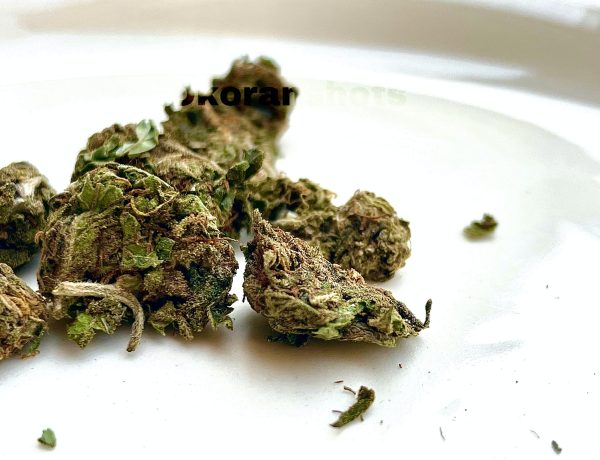Drinking alcohol is more than just a social habit—it’s directly linked to higher cancer risks. Research shows alcohol can raise your chance of developing seven types of cancer, including liver, breast, and throat cancer.
Many people overlook how even small amounts can affect long-term health. With years spent researching public health issues like substance abuse and harmful habits, I’ve witnessed the toll heavy drinking takes on lives. This article explains the effects of drinking alcohol on your body and its connection to cancer risks in clear terms you’ll remember.
Keep reading—you’ll want this information!
The Link Between Alcohol and Cancer
Drinking can heighten the risk of several types of cancer, such as liver and breast cancer. Studies show even moderate drinking may contribute to these dangerous outcomes.
Types of cancers linked to alcohol consumption
Alcohol use is a recognized risk factor for various types of cancer. Scientists have found strong links between alcohol consumption and at least seven different cancers.
- Liver Cancer
The process of breaking down alcohol places stress on the liver, causing scarring and inflammation over time. This damage raises the chances of developing liver cancer, one of the most frequently associated cancers with heavy drinking. - Breast Cancer
Women who consume even small amounts of alcohol face an increased breast cancer risk. Studies indicate that these women have up to a 19% greater lifetime risk compared to those who do not drink. - Mouth and Throat Cancers
Alcohol irritates tissues in the mouth and throat, making them more susceptible. Drinking in excessive amounts significantly increases the chances of developing cancers in these areas. - Esophageal Cancer
Consuming high levels of alcohol can result in chronic irritation and inflammation in the esophagus. Individuals with alcohol dependency are particularly vulnerable to this serious form of cancer. - Colorectal Cancer
Research has established clear connections between excessive alcohol consumption and colorectal cancer cases globally. Even moderate amounts contribute to increased risks for tumors in the colon or rectum. - Head and Neck Cancers
Frequent alcohol consumption harms cells in the neck and head region, especially when combined with the use of tobacco products. - Pancreatic Cancer
Alcohol causes inflammation and weakens the pancreas over time, creating conditions where pancreatic cells can develop into cancerous growths.
These cancers emphasize the harmful long-term impact alcohol can have on vital systems throughout the body.
Drinking alcohol isn’t solely about hangovers or liver health. It has a more severe downside concerning cancer risk. Here’s a brief overview of the statistics that tie alcohol use to cancer cases.
| Statistic | Details |
|---|---|
| 7 Types of Cancer | Connected to alcohol, including liver, breast, throat, colon, and mouth cancers. |
| Lifetime Risk | 19% increase in cancer risk among women who drink alcohol. |
| Preventable Cause | Alcohol ranks as one of the top avoidable factors for cancer globally. |
| DNA Damage | Alcohol harms DNA, paving the way for tumor growth. |
| Inflammation Link | Chronic inflammation from alcohol consumption raises cancer risk. |
| Liver Cancer | One of the most frequent alcohol-related cancers worldwide. |
| Surgeon General Warning | Brought attention to the connection between drinking habits and cancer. |
Stark, isn’t it? These facts aren’t just statistics—they serve as a strong reminder.
How Alcohol Increases Cancer Risk
Alcohol messes with your body in ways you might not expect. It can harm cells, trigger imbalances, and weaken defenses needed to stay healthy.
The chemical connection
Ethanol, the main chemical in alcoholic beverages, breaks down into acetaldehyde. This toxic compound damages DNA directly and interferes with cell repair. Damaged cells can multiply uncontrollably, increasing cancer risks like liver and breast cancer.
Excessive alcohol intake also triggers oxidative stress. This leads to inflammation that harms tissues further, creating an environment where tumors thrive. Both short-term effects of alcohol and its long-term consequences link directly to higher cancer chances through these pathways.
Hormonal changes
Drinking heavily disrupts hormone levels in the body. Alcohol elevates estrogen production, which increases breast cancer risk. Women who consume alcohol have a 19% higher lifetime chance of developing cancers associated with alcohol, such as breast cancer.
Excessive drinking also reduces testosterone, affecting overall hormonal balance and potentially leading to long-term health problems.
Hormonal changes caused by alcohol may promote tumor growth. By increasing insulin levels, alcoholic beverages interfere with glucose regulation, which connects to heightened risks for colorectal cancer and liver cancer.
These imbalances don’t just harm physical health—they can intensify mental health struggles linked to excessive drinking or frequent consumption of hard liquor.
Impact on nutrient absorption
Alcohol disrupts the body’s ability to absorb key nutrients like vitamins A, C, D, E, and several B-complex vitamins. This interference happens because alcohol damages the digestive system lining and reduces enzyme production needed for breaking down food.
Heavy drinking often leads to deficiencies in folate, an important nutrient that helps repair DNA. Low levels of folate have been directly linked to an increased risk of colorectal cancer.
Frequent binge drinking or long-term alcohol dependence depletes important minerals such as zinc and magnesium. These minerals play key roles in immune function and cell repair. Poor absorption weakens the body’s defenses against diseases like liver cancer and breast cancer while also increasing other health risks caused by inflammation or hormonal changes tied to regular alcohol use.
The Role of Drinking Levels
Drinking habits play a big role in shaping health outcomes. How much and how often you drink can impact your cancer risk over time.
Effect of moderate vs. heavy drinking
Moderate drinking increases cancer risk but remains lower compared to excessive drinking. Research indicates that women consuming one drink daily raise their breast cancer risk by 7–10%.
Excessive drinking elevates this further, contributing greatly to liver cancer and esophageal cancer cases. Regular binge drinking causes severe harm to DNA and weakens the immune system, speeding up tumor growth.
Drinking excessively also leads to inflammation, particularly in the throat’s lining and digestive tract, which fosters cancers such as head and neck or colorectal cancer. Alcohol use disorder often results in dangerous drinking patterns, worsening harm over time.
Lowering consumption plays an important role in reducing long-term effects of alcohol-related diseases while addressing high blood pressure and associated risks like heart disease.
Steps to Reduce Cancer Risk
Cutting back on alcohol can lower your risk of certain cancers. Swap your usual drink with non-alcoholic options to protect your health and feel better.
Limiting alcohol consumption
Drinking less alcohol can significantly lower the likelihood of developing cancer. Studies show that decreasing consumption reduces the chances of liver, breast, and throat cancers—three of at least seven associated with alcoholic beverages.
Even moderate drinking increases breast cancer risk for women by up to 19%. Heavy drinking damages DNA and inflames tissues, creating conditions that allow tumors to develop over time.
Switching from binge drinking or steady heavy consumption to occasional sipping can support your immune system while reducing long-term effects like colorectal cancer or high blood pressure.
People dependent on alcohol face greater risks; reducing intake early helps avoid chronic illnesses and future complications. Small changes today lead to healthier outcomes in the future!
Considering alcohol-free alternatives
Mocktails offer a fun and safe way to enjoy social events without alcohol-related harm. These beverages, made with fruits, herbs, or ginger ale, eliminate the health risks tied to drinking heavily.
Alcohol-free wines and beers also provide similar flavors but avoid long-term effects of alcohol consumption like liver cancer or high blood pressure.
Herbal teas can calm stress while supporting overall health. Sparkling water mixed with fresh fruit creates an appealing substitute for alcoholic beverages at gatherings. Swapping heavy drinking for these options lowers breast cancer risk by reducing exposure to harmful substances in alcohol metabolism processes.
Conclusion
Reducing alcohol consumption can decrease your risk of cancer. Research shows that drinking harms cells, disturbs hormone levels, and interferes with important processes in your body.
Even moderate drinking raises risks for cancers such as breast or liver cancer. Opting to drink less or selecting non-alcoholic alternatives supports your health. Minor adjustments now could lead to fewer regrets in the future.
Read more health and wellness articles at ClichéMag.com
Images provided by Deposit Photos, BingAI, Adobe Stock, Unsplash, Pexels, Pixabay & Creative Commons





